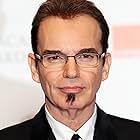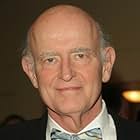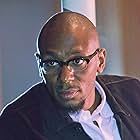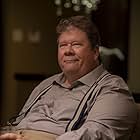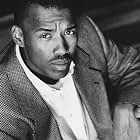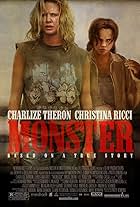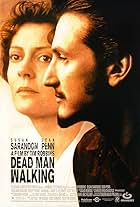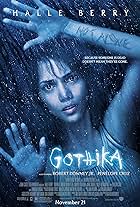After a family tragedy, a racist prison guard re-examines his attitudes while falling in love with the African-American wife of the last prisoner he executed.After a family tragedy, a racist prison guard re-examines his attitudes while falling in love with the African-American wife of the last prisoner he executed.After a family tragedy, a racist prison guard re-examines his attitudes while falling in love with the African-American wife of the last prisoner he executed.
- Won 1 Oscar
- 15 wins & 23 nominations total
Yasiin Bey
- Ryrus Cooper
- (as Mos Def)
Sean 'Diddy' Combs
- Lawrence Musgrove
- (as Sean Combs)
- Director
- Writers
- All cast & crew
- Production, box office & more at IMDbPro
Storyline
Did you know
- TriviaBilly Bob Thornton says filming sex scenes made his marriage to Angelina Jolie tough. The actor was wed to Jolie from 2000 to 2003, during which time he filmed this movie - featuring explicit scenes with Halle Berry - which put pressure on them both. He told The Sun newspaper: "If you are an actor, even doing a Disney movie or cartoon voices, you could still be away from each other for six months. Look how it applied to me. I go away and do a film like Monster's Ball with a very explicit sex scene with Halle Berry. She is one of the most beautiful women in the world and I am talking on the phone to my wife, and she says, 'What have you been doing today?' And I say, 'Oh, I did that sex scene with Halle Berry.' You are then asked if you actually touch her. I say, 'I had to - it's in the scene'. Other people's situations are hard, with areas of doubt. But if you are a thousand miles from home on a film set simulating sex with a beautiful woman, it's even tougher."
- GoofsThroughout the movie there are conflicting references to its being set in Louisiana, Mississippi, or Georgia although the movie was filmed entirely in Louisiana.
- Quotes
Sonny Grotowski: You hate me. You hate me, don't you? Answer me! You hate me don't you!
Hank Grotowski: Yes, I hate you. Always have.
Sonny Grotowski: Well I've always loved you.
- Crazy creditsThanks to Sam, Austin, Gabrielle. Scott Lambert is thanked twice.
- Alternate versionsThe initial cut of the picture included more explicit footage during the sex scene between Halle Berry and Billy Bob Thornton, which was trimmed down after the MPAA threatened to give the film a NC-17 rating. The uncut version premiered at the Berlin Film Festival on February 8, 2001. The R-rated US theatrical release is the cut version; the version released theatrically in Canada and most other countries is the uncut version.
- SoundtracksBroken Up and Blue
(1998)
Performed by Red Meat
Written by Jill Olson
Published by Olson Girl Publishing (ASCAP)
Administered by Bug Music, Inc.
Courtesy of Ranchero Records
Featured review
Hank Grotowski (Billy Bob Thornton) is the middle generation of three generations of prison guards. His father Buck (Peter Boyle) is long retired and a near-invalid, using a walker and leaning on an iron lung. His son Sonny (Heath Ledger) is a novice guard. Hank and Sonny work together on Death Row and are among the guards responsible for the executions (Hank's in charge).
The first thing that strikes one about this particular group of men is the level of racism that's apparent in each one. Buck's the worst - he screams at young black kids who happen to wander onto "his" property (all three Grotowskis live together) and is liable to spout off some hateful rhetoric at any time. Hank's not a lot better, but his feelings seem tempered in contrast to Buck; he seems more weary than angry. And Sonny is actually friends with that same neighboring black family whose kids come over every now and then.
Thus the line of racism is significantly watered down as the generations progress. This is not to suggest that Sonny is an angel, or that Buck is the absolute devil. Sonny and Hank share the same hooker (though not at the same time); all three men drink, smoke, and cuss like sailors. In short, they're simply not nice folk.
While Hank and Sonny are transporting a prisoner to the electric chair, Sonny takes ill and can't continue. Because of this, the prisoner (who had bonded a little with the compassionate Sonny earlier) suffers a little during his execution. Enraged, Hank attacks his son in the locker room after the execution, and the other guards have to separate them.
That's one relationship being examined - that of Hank and Sonny. The other is the more important one, however. The widow of the executed prisoner, Leticia Musgrove (Halle Berry), is trying to make ends meet as a waitress. But her car constantly dies on her, and after being late to work repeatedly, she's fired - shortly after her husband is executed. She has one overeating kid to feed, too. She does get another job as a waitress, but has to ditch the car when it dies a final time. Walking home in the rain, her son (who has to come with her; can't leave him home to binge) his hit by a car. Hank happens to be passing by, and with some reluctance (remember, he is racist, if not as bad as his father), he stops to help.
There's a wonderful dichotomy between the relationship between Leticia and her son and that between Hank and his son. Milo Addica and Will Rokos, who wrote the screenplay, weave a very effective tale that manages to keep all of the characters interesting and relevant. What makes Hank act the way he does? What are Leticia's motivations? And it would be very easy for the actors to portray the characters as nothing more than stereotypes - Hank the nasty, racist white male, and Leticia the vulnerable, victimized African American woman. But both Thornton and Berry rise above their characters' limitations - Hank's not the devil he might think he is, and Leticia isn't the angel that a lesser actress might make her out to be.
It's also worth mentioning that each of the two leads has something shocking and powerful happen to them near the beginning of the film, before they really meet. These two events have a huge impact on the characters - you might call the events "life-altering". The events allow us to see actual change in the character. Not sudden change, which can be jarring and unrealistic, but gradual, authentic, eminently believable change.
The performances by the leads are nothing short of sensational. Berry won the Oscar for Best Actress for her work here. Yes, you read right - Halle Berry. She of The Flintstones, Swordfish, and being married to David Justice fame. See, this is what happens when you give a good actress a great role. The best actresses will rise to the level of the role; the mediocre actresses will sink below it, collapsing under its weight.
Thornton has a tendency to pick offbeat, idiosyncratic roles, albeit usually with a Southern twist. His Hank is not a carbon copy of your stereotypical Dirty White Boy; he's a multilayered character with charm and evil mixed in. The film doesn't make him out to be a complete hero; just a flawed one. By the movie's end, he has come to grips (a little) with his failures and his shortcomings.
Berry and Thornton have a great supporting cast in Boyle and Ledger. When you think of a hateful, misanthropic, misogynistic demon, you don't think of Peter Boyle, who's turning in great comedic work on the TV show "Everybody Loves Raymond". But after this movie, you sure do. Great job. And Ledger - well, I know him best from The Patriot, as Mel Gibson's oldest son. In that movie, he was tough, but he was still a boy in a world of adults. That boy's grown up, and Ledger proves his mettle as an actor in this role.
There will be some who find this movie too slow; granted, if you're looking for action, this won't appeal to you. But it's an excellent story, and not as simplistic as it may seem on the outside. It's very well written (meaning that there are few plot holes), and ably directed. You may be fascinated, as I was, with the character development from beginning to end. Things are not - pardon the expression - treated as black-and-white issues; there are varying grays that are resolved and not resolved by movie's end.
The first thing that strikes one about this particular group of men is the level of racism that's apparent in each one. Buck's the worst - he screams at young black kids who happen to wander onto "his" property (all three Grotowskis live together) and is liable to spout off some hateful rhetoric at any time. Hank's not a lot better, but his feelings seem tempered in contrast to Buck; he seems more weary than angry. And Sonny is actually friends with that same neighboring black family whose kids come over every now and then.
Thus the line of racism is significantly watered down as the generations progress. This is not to suggest that Sonny is an angel, or that Buck is the absolute devil. Sonny and Hank share the same hooker (though not at the same time); all three men drink, smoke, and cuss like sailors. In short, they're simply not nice folk.
While Hank and Sonny are transporting a prisoner to the electric chair, Sonny takes ill and can't continue. Because of this, the prisoner (who had bonded a little with the compassionate Sonny earlier) suffers a little during his execution. Enraged, Hank attacks his son in the locker room after the execution, and the other guards have to separate them.
That's one relationship being examined - that of Hank and Sonny. The other is the more important one, however. The widow of the executed prisoner, Leticia Musgrove (Halle Berry), is trying to make ends meet as a waitress. But her car constantly dies on her, and after being late to work repeatedly, she's fired - shortly after her husband is executed. She has one overeating kid to feed, too. She does get another job as a waitress, but has to ditch the car when it dies a final time. Walking home in the rain, her son (who has to come with her; can't leave him home to binge) his hit by a car. Hank happens to be passing by, and with some reluctance (remember, he is racist, if not as bad as his father), he stops to help.
There's a wonderful dichotomy between the relationship between Leticia and her son and that between Hank and his son. Milo Addica and Will Rokos, who wrote the screenplay, weave a very effective tale that manages to keep all of the characters interesting and relevant. What makes Hank act the way he does? What are Leticia's motivations? And it would be very easy for the actors to portray the characters as nothing more than stereotypes - Hank the nasty, racist white male, and Leticia the vulnerable, victimized African American woman. But both Thornton and Berry rise above their characters' limitations - Hank's not the devil he might think he is, and Leticia isn't the angel that a lesser actress might make her out to be.
It's also worth mentioning that each of the two leads has something shocking and powerful happen to them near the beginning of the film, before they really meet. These two events have a huge impact on the characters - you might call the events "life-altering". The events allow us to see actual change in the character. Not sudden change, which can be jarring and unrealistic, but gradual, authentic, eminently believable change.
The performances by the leads are nothing short of sensational. Berry won the Oscar for Best Actress for her work here. Yes, you read right - Halle Berry. She of The Flintstones, Swordfish, and being married to David Justice fame. See, this is what happens when you give a good actress a great role. The best actresses will rise to the level of the role; the mediocre actresses will sink below it, collapsing under its weight.
Thornton has a tendency to pick offbeat, idiosyncratic roles, albeit usually with a Southern twist. His Hank is not a carbon copy of your stereotypical Dirty White Boy; he's a multilayered character with charm and evil mixed in. The film doesn't make him out to be a complete hero; just a flawed one. By the movie's end, he has come to grips (a little) with his failures and his shortcomings.
Berry and Thornton have a great supporting cast in Boyle and Ledger. When you think of a hateful, misanthropic, misogynistic demon, you don't think of Peter Boyle, who's turning in great comedic work on the TV show "Everybody Loves Raymond". But after this movie, you sure do. Great job. And Ledger - well, I know him best from The Patriot, as Mel Gibson's oldest son. In that movie, he was tough, but he was still a boy in a world of adults. That boy's grown up, and Ledger proves his mettle as an actor in this role.
There will be some who find this movie too slow; granted, if you're looking for action, this won't appeal to you. But it's an excellent story, and not as simplistic as it may seem on the outside. It's very well written (meaning that there are few plot holes), and ably directed. You may be fascinated, as I was, with the character development from beginning to end. Things are not - pardon the expression - treated as black-and-white issues; there are varying grays that are resolved and not resolved by movie's end.
- dfranzen70
- Jun 16, 2002
- Permalink
Details
- Release date
- Country of origin
- Official site
- Language
- Also known as
- El pasado nos condena
- Filming locations
- Production companies
- See more company credits at IMDbPro
Box office
- Budget
- $4,000,000 (estimated)
- Gross US & Canada
- $31,273,922
- Opening weekend US & Canada
- $110,552
- Dec 30, 2001
- Gross worldwide
- $45,011,434
- Runtime1 hour 51 minutes
- Color
- Sound mix
- Aspect ratio
- 2.39 : 1
Contribute to this page
Suggest an edit or add missing content












